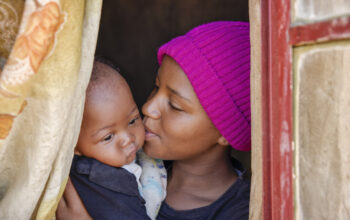New collaboration to improve access to quality cancer management in LMICs

This blog was originally published on 28 June by Media Planet in Global Cause and as a supplement to The Guardian.
There is a huge gap in cancer mortality rates between high and lower-resource settings, with 70% of global cancer deaths occurring in low- and middle-income countries (LMICs).
The gap in cancer mortality rates is due to non-existent or partial cancer screening strategies, late diagnoses, lack of trained health workers and infrastructures and insufficient inclusion of cancer in universal health coverage schemes. In oncology — breast cancer specifically — early diagnosis, timely treatment and full patient completion of treatment regimens are associated with better health outcomes for patients.
The World Health Organization (WHO) is partnering with the City Cancer Challenge Foundation (C/Can) to implement the framework of the WHO Global Breast Cancer Initiative (GBCI), which aims to avoid 2.5 million breast cancer deaths globally by 2040.
Partnering to reduce breast cancer mortality
The WHO GBCI Framework was published in early 2023 and provides a comprehensive approach for countries to address their breast cancer burden. C/Can is a nonprofit foundation that works with cities in LMICs to improve access to cancer care. It will support the WHO with its multisectoral city network to translate GBCI recommendations and national dialogues into actionable work plans.
This innovative collaboration will combine the convening power and global reach of WHO with the ‘on-the-ground’ implementation experience of C/Can — now operating in 13 cities around the world. It also seeks to leverage the resources and expertise of the private sector, which is actively supporting cancer access programmes. Amgen, AstraZeneca, Bristol Myers Squibb and MSD announced their commitment to the initiative with in-kind and financial contributions.
Health system improvements will not only benefit people living with breast cancer but can also be applied to other cancers and non-communicable diseases (NCDs).
A domino effect for health systems
The capacity-building efforts laid out in the GBCI framework should create the right expertise, infrastructure and policies at city, regional and country levels. Health system improvements will not only benefit people living with breast cancer but can also be applied to other cancers and non-communicable diseases (NCDs).
By effectively combining the expertise and resources from both private and public sectors, this collaboration strives toward a vital common goal: improving the lives of people living with cancer in LMICs and underserved communities in well-resourced countries.
Authors







